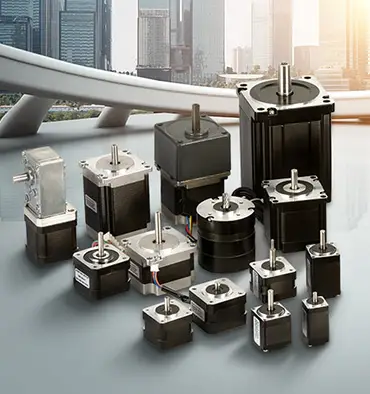Is a stepper motor better than a DC motor?
Stepper and DC motors are widely used in industries ranging from automation and robotics to consumer electronics. Although these two types of motors have their unique advantages and applications, stepper motors have obvious advantages over DC motors in some cases.
What is a stepper motor?
A stepper motor is a motor that moves in a discrete step, rather than rotating continuously like a DC motor. The rotor of the stepper motor is influenced by the digital signal of the controller to move in a small, precise stride. This makes stepper motors ideal for precise positioning and control, such as 3D printers and robotic arms.
Advantages of stepper motors
- One of the advantages of stepper motors over DC motors is their precise control. The stepper moror can be pinpointed and controlled via a microcontroller or other digital signal. This makes the stepper motor ideal for applications that require precise control, such as positioning in manufacturing or robots.
- Another advantage of step motors is that they do not require feedback sensors to control their position, it means that the motor can be accurately controlled without additional sensors.
- Stepper motors also have high retention torque, which means they maintain a precise position even under load.
In contrast, DC motors are less accurate and controlled than stepper motors. The DC motor rotates continuously, making it difficult to control its speed and position precisely. In addition, DC motors require feedback sensors to accurately control their location, which increases the complexity and cost of the system.
Conclusion
In short, stepper motors have obvious advantages over DC motors in some applications. Their precise control, lack of feedback sensors, and high maintenance torque make them ideal for applications that require precise positioning and control, such as manufacturing, robotics, and 3D printing. However, DC motors may be better suited for applications that require high speed or high efficiency.


Leave a Reply